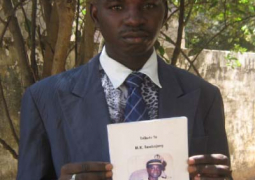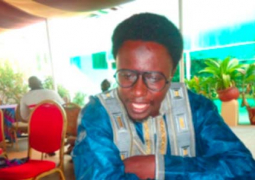Imagine how can the world be in peace without food to millions of people. In essence, hunger poses a serious and even increasing problem in many low income countries, affecting even the health and social welfare of millions of people. Hunger could lead to life-threatening opportunistic organised crimes. This is a reality. And apart from the direct threat posed to life and property, hunger threatens human security by impacting on both the inclination and the capacity of state structures to provide security for their citizens.
The latest FAO report indicates that over one billion people go to bed hungry every day. This is not the best piece of news one would like to hear.
It has therefore become necessary to find ways and means to better the status quo.
Currently there is a three-day training workshop underway at Jarra Jenoi, in the Lower River Region, on the right to food.
At the opening of this essential training workshop, Mr. Alhagie Kebbeh said that it is a fundamental human right of every person to have food.
This is clearly stated in The Gambia's Constitution and the Universal Declaration of 1945.
It is indeed disheartening that hunger has wreaked so much havoc in Africa, and should be allowed to continue afflicting this continent at a time when there is so much work being done and so much information readily available.
We join Mr. Kebbeh to urge the government to help farmers with farming materials with a view to supporting them for self-food sufficiency.
All would assent to the fact that challenges for food security for all can only be resolved through global partnership involving national, international, public, private and voluntary sectors.
We call on all and sundry to seek to join the global battle against hunger.
The media, as the commonest and easiest channel of engaging the public on topical issues and as the mouthpiece of the people, therefore has the mandate to demand this from all.
'Eating is our earliest metaphor, preceding our consciousness of gender difference, race, nationality, and language. We eat before we talk.'
ATWOOD, Margaret
Read Other Articles In Article (Archive)




